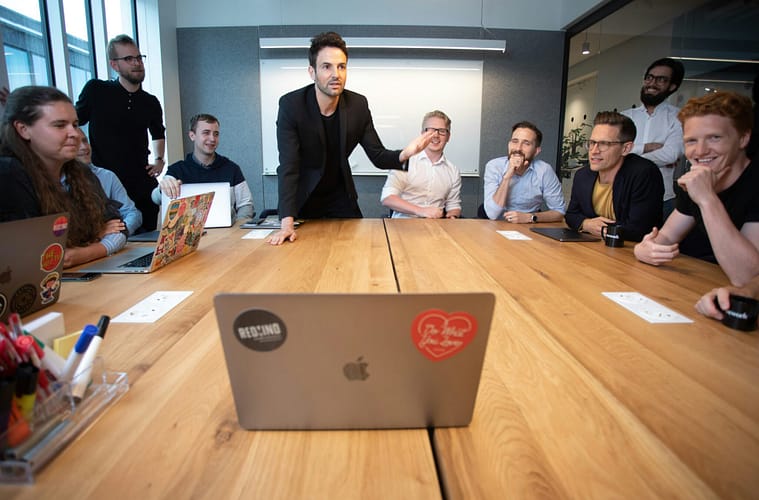Building a high-performing team does not happen overnight. It requires careful planning, trust, and an environment that motivates every member to work toward shared goals. Leaders who invest in their teams foster collaboration, increase engagement, and ultimately drive better results for their organization.
Understanding the Foundations of a Strong Team
Every successful team starts with a solid foundation. Clear roles, mutual respect, and open communication form the building blocks of trust. Without these, even the most talented individuals may struggle to work cohesively. Teams that embrace diversity and leverage each member’s strengths often demonstrate higher levels of creativity and problem-solving ability. According to a Gallup study, engaged teams show 21% greater profitability compared to disengaged ones, emphasizing the measurable impact of strong team dynamics. Taking time to define a shared mission and clarify expectations helps align individual efforts with organizational objectives. Teams that revisit their core values regularly often remain more resilient during challenges.
Creating a Culture of Collaboration
Collaboration is not just about working together; it is about valuing input from all members and encouraging active participation. Teams thrive when individuals feel that their voices matter. Integrating activities that promote both professional and personal connections can improve teamwork significantly. Many New South Wales-based organizations explore top team building ideas in Sydney to take advantage of the city’s diverse venues and creative experiences that help employees connect beyond their daily responsibilities and foster trust that translates into workplace performance. Technology also plays a growing role, with collaboration platforms enabling seamless communication across time zones. Encouraging knowledge sharing through peer-to-peer learning further deepens team bonds and accelerates skill development.
The Role of Leadership in Team Success
Strong leadership is the glue that holds a team together. A good leader sets the tone for open communication, ensures accountability, and provides consistent support. Effective leaders also adapt their style depending on the needs of the group, balancing guidance with autonomy. Research by Deloitte indicates that organizations with excellent leadership development programs are 1.5 times more likely to outperform their peers financially. This highlights the critical role of leadership in sustaining team morale and ensuring long-term effectiveness. Beyond guiding day-to-day operations, leaders also serve as role models whose behavior shapes workplace culture. Leaders who demonstrate integrity, empathy, and resilience inspire teams to do the same, creating a cycle of trust and high performance.
Building Trust Through Transparency
Trust is the foundation upon which teamwork thrives. Transparency from leaders and team members builds credibility and reduces conflicts. When individuals feel that decisions are made openly, they are more likely to remain engaged and motivated. Regular feedback sessions, acknowledgment of contributions, and honest communication all contribute to a sense of fairness and reliability. Trust also fosters psychological safety, which allows team members to take risks and share ideas without fear of criticism. One effective way to strengthen transparency is through shared accountability systems. Teams that track progress openly and review both successes and failures collectively create an environment where honesty becomes second nature.
Harnessing the Power of Diversity
A team composed of individuals with diverse backgrounds, skills, and perspectives is often more innovative. Differences in thought processes encourage creative problem-solving and minimize blind spots in decision-making. McKinsey research shows that companies with greater diversity in their workforce are 35% more likely to achieve above-average financial returns. When managed effectively, diversity strengthens a team’s ability to adapt to challenges and identify new opportunities. Creating an inclusive environment where every member feels valued is essential for unlocking these benefits. Leaders who prioritize equitable participation ensure that every perspective is valued. This inclusivity not only drives innovation but also boosts morale, as employees feel more respected and empowered.
Sustaining Motivation and Engagement
Even the strongest teams require ongoing efforts to remain motivated and engaged. Recognition, opportunities for growth, and alignment with organizational goals keep employees invested in their work. Teams that celebrate both small and large achievements reinforce a culture of appreciation and pride. According to a report by SHRM, 79% of employees who leave their jobs cite a lack of appreciation as a key factor. Ensuring that team members feel valued is one of the most effective ways to maintain long-term loyalty and productivity. Organizations can also strengthen motivation by offering career development paths and ensuring workloads are balanced. A healthy work-life balance prevents burnout and encourages consistent performance over time.
A strong team is built on trust, collaboration, and shared vision. Leaders who nurture these qualities see improved morale, increased productivity, and long-term success. By fostering an inclusive culture, embracing diversity, and sustaining motivation, organizations can unlock the true potential of their teams and achieve lasting growth.
Published by HOLR Magazine.



